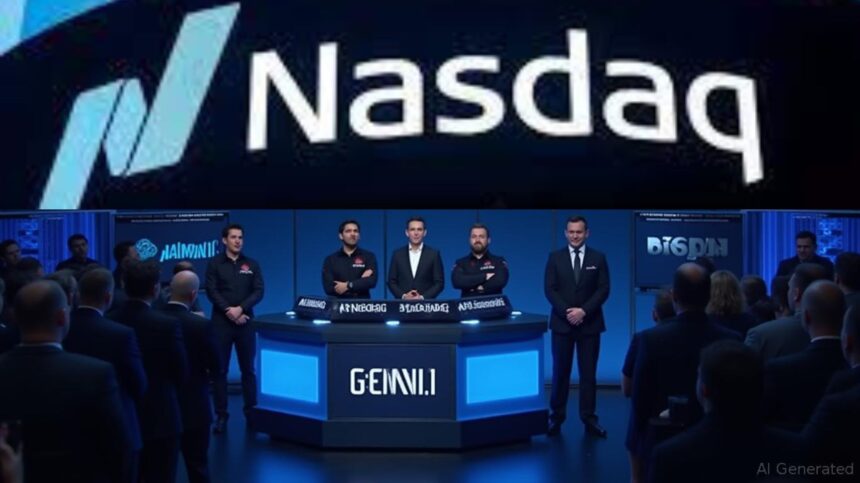Nasdaq is set to invest $50 million in the initial public offering of Gemini, according to people familiar with the matter, marking a deeper push by the market operator into digital assets at a moment when equity issuance is recovering.
The funding would come through a private placement that closes alongside the IPO and is paired with a commercial partnership between the two firms, the report said.
Gemini, founded by Cameron and Tyler Winklevoss, aims to raise as much as $317 million and list this week under the ticker GEMI, the report added.
If the flotation proceeds on that timeline, Gemini would become the third publicly traded crypto exchange in the United States after Coinbase and Bullish.
Gemini has already launched marketing for the deal, company announcement last week said it plans to offer 16,666,667 Class A shares. The filing puts the venue on the Nasdaq Global Select Market and outlines the mechanics of the sale to the public.
Pricing terms reported by financial media indicate a range that would put gross proceeds a little above $300 million at the top end before any private placement or overallotment.
The private placement is the part investors will watch most closely because it ties the exchange to a core player in U.S. capital markets.
As described by people briefed on the transaction, Nasdaq’s clients would gain access to Gemini’s crypto custody and staking services, while Gemini’s institutional users would be able to use Nasdaq’s Calypso platform for managing and tracking trading collateral.
The combination is notable because it links a crypto-native firm’s infrastructure with tools that are already embedded in traditional trading workflows.
A successful debut by Gemini would add another public-market reference point for crypto businesses whose revenue is sensitive to trading volumes and token prices. It would also broaden the small cohort of exchange operators that give public investors direct exposure to the sector’s transaction economics.
For Gemini, public status would provide currency for hiring and partnerships, and it would subject the business to the quarterly transparency that many institutional clients prefer.
The company has positioned itself as a compliant gateway for both retail and institutions. In a crowded field, that positioning could matter if regulators continue to push for clearer guardrails on custody, staking, and stablecoin activities.
Exchange businesses can show sharp operating leverage in bull markets, but revenue can compress quickly when volumes slow, so buyers will likely scrutinize cost discipline, diversification beyond spot trading, and any plans to expand into higher-margin services.
Nasdaq’s role underscores how the lines between digital assets and traditional finance continue to blur. For the exchange operator, a stake in Gemini, paired with service integrations, offers a way to participate in crypto activity while staying close to the institutional users that already rely on its technology.
If the partnership executes as described, Nasdaq’s foothold in crypto infrastructure could deepen without bearing the full volatility of a pure-play trading platform.















